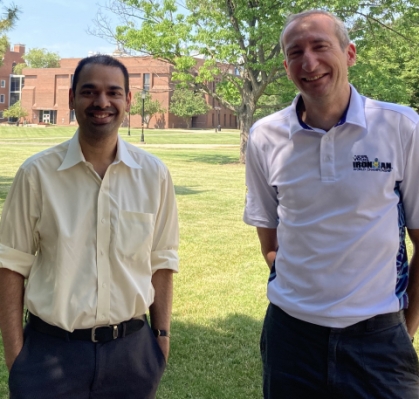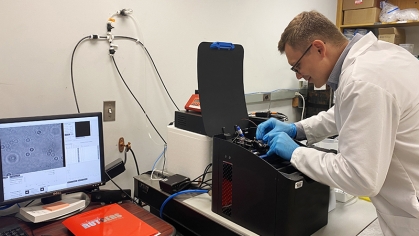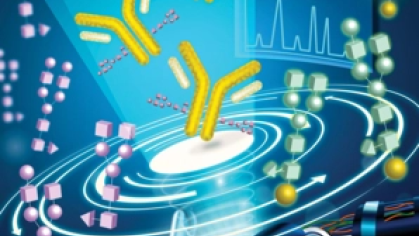Visiting Fulbright Scholar Collaborates with Prof. Ramachandran
Professors Team Up to Improve Pharmaceutical Product Design to Save Lives
For more than a decade, Rohit Ramachandran, an associate professor and chancellor’s scholar in the School of Engineering Department of Chemical and Biochemical Engineering (CBE), has enjoyed a productive research collaboration with Stepanek Frantisek, a professor at the University of Chemistry and Technology, Prague.
“Our collaboration started via common interests in wet granulation and particle technology and has continued – resulting in joint travel grants, student and faculty exchanges, and multiple joint journal papers and conference presentations,” says Ramachandran.
Frantisek, who is a professor of chemical engineering and scientific director of his university’s Centre for Applied Pharmaceutical Research, arrived on campus in April on a Fulbright scholarship that extends to July. “My research interests in pharmaceutical engineering and the processing of powders are very close to those of the CBE department,” he says. “It is a perfect alignment and I am very happy it was possible to organize my Fulbright stay in spite of the pandemic,” he says.
“My main aim while here is to identify new collaboration opportunities and strengthen existing ones. I see my Fulbright stay as an opportunity to work on some of the research topics in greater depth.”
Manufacturing is often taken for granted and drug discovery is regarded as the more difficult step in rolling out new products. But as theCOVID-19 pandemic has shown us, manufacturing can often be a bottleneck as well. Being able to rapidly design a process that meets production capacity and product quality requirements is important – and it can save lives.
Stepanek Frantisek
According to Ramachandran, the pair is currently working on understanding the mechanisms of bi-component pharmaceutical granulation, which is an important process in making pharmaceutical tablets. “The challenge in this process is that the active pharmaceutical ingredient and excipients need to be mixed and granulated well for the final tablet to achieve its desired therapeutic property,” he says. “Therefore, we’re working together to advance the science so that we can better design and eventually improve the manufacturing efficiency of these processes,” he explains.
The team’s development of mathematical models and computational algorithms, Frantisek notes, will ultimately lead to the faster, more accurate manufacture of medicinal products.
At Rutgers, Frantisek will be working closely with Ramachandran’s group on this and other projects, as well as working with CBE graduate students. “He brings to the table a diverse range of experimental and theoretical skills that will contribute to our projects here. He will also be working with other faculty and their groups,” says Ramachandran.
For Frantisek, while being able to travel to Rutgers for his Fulbright from the Czech Republic is a welcome sign that life is beginning to return to normal, it is also a source of inspiration. “I’m a person who needs to change environments from time to time in order to refresh my mind, and this was one of my reasons for coming here,” he recalls. “I expect new ideas to arise from my Fulbright stay and to make new contacts. Hopefully, a further exchange of PhD students between our universities will be part of follow-up collaborative projects.”



